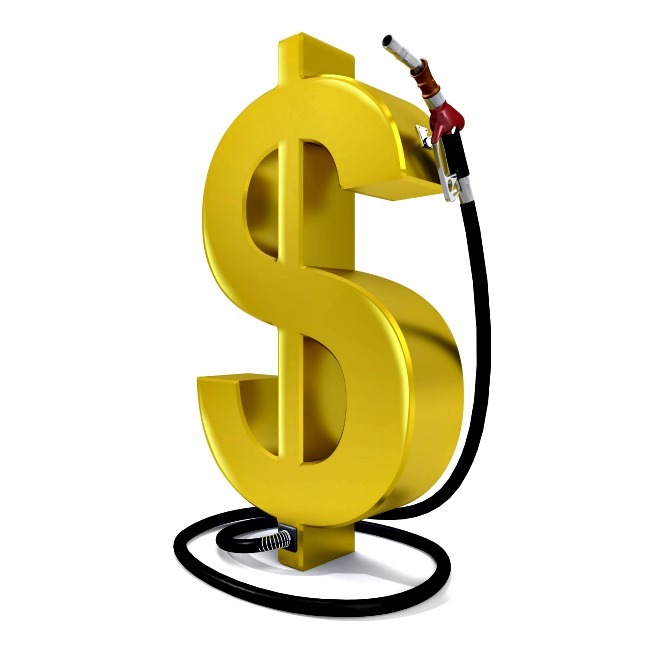I’m sure you’ve been enjoying the lower gas prices. Where the credit card would max out at $100 without filling my tank, it now costs around $60 for a tankful! However, there are many un-intended consequences to this windfall. This is a huge economic impact in less than a year – annually in the US alone, it means $14 Billion in the consumers pocket. While that sounds like a great economic boon, if consumers use that money to pay down debt and not use it towards consumption, it can actually cause dis-inflation or deflation.
Transportation tax revenues which are a % of the price of gas have taken a huge toll and government transportation budgets will suffer. Economies which are totally dependent on oil revenues are in turmoil which could lead to significant social and political upheaval (Russia, Latin America etc.). Sales of SUVs (higher) and energy efficient cars (lower) have already seen a shift. Other economic sectors are already feeling the impact (steel industry announced layoffs) because of lower demand for exploration. Fracking for natural gas is becoming less and less attractive economically as an alternative. The Keystone pipeline is facing the same issue as it is no longer commercially viable.
The one thing I’ve never understood is how prices can vary so much at different gas stations. I was just passing a major intersection with 3 gas stations at the corners (Shell, BP and Mobil) and one of them was 10¢ higher than the lowest and the other was 20¢ higher – at the same intersection! Surprisingly, there were more customers in the two highest priced gas stations, a phenomena that defies all logic. You would think people would drive across the street for a $4 difference per tank? What would you do – especially since all three are brand names?
Shankar Vedantam recently had a story on NPR where he points out that 9,000 more people will die due to the lower gas prices based on a recent study. There are the obvious factors that people drive more and therefore more accidents cause more deaths. Interestingly, it’s also tied to how we drive, as people tend to drive more conservatively (therefore more safely) when gas prices are higher. The composition of who is driving also changes. When prices are higher, younger drivers drive less as they cannot afford as much gas and the inverse is true. And younger drivers are far more risky on the road than older drivers. More truck traffic because of lower gas prices is surely another contributor. By the way, the people who tend to drive less in times of higher gas prices are the poorer people so the increase in the number of road fatalities due to higher gas prices impacts them the most.
Have the lower gas prices impacted your personal behavior? I’m assuming that you are reviewing all your supplier contracts where fuel costs are significant cost drivers and looking for relief – just like you had to agree to surcharges when they were high. Of course, we are all waiting for airlines to slash ticket prices immediately (don’t hold your breath). Are you starting to see any impact on your “order book” at all? Clearly, lower gas prices have both micro and macro impacts but they are a mixed bag. Such a large transfer of wealth from the producers of oil to the consumers of oil has many un-intended consequences.

